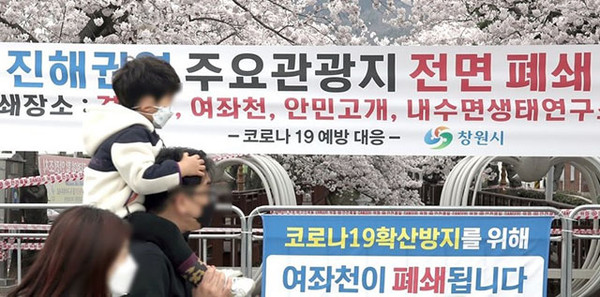The dangers of COVID-19 have, for the most part, faded away in South Korea. While Europe and the United States are suffering due to the improper execution of social distancing and a general lack of preparedness, Korea has become one of the safest countries in the world. The number of daily new cases has decreased significantly since March, with that number not exceeding 50 since April 6. However, this surely is not the end of the crisis, unless we can put an end to the disease itself. Many residents of South Korea have already become inattentive to the COVID-19 guidelines, arrogant almost. We seem to believe we have dodged a bullet, in time for springtime. The warmer weather led many outside, some even going to festivals to view flowers. And of course, they didn’t practice social distancing in the process.

Believing they are safe, many are breaking isolation guidelines to go back to their normal lives. Going to Korean saunas, internet cafes, or flower festivals, South Koreans seem to be relatively unaffected amidst the global chaos. However, four people were infected in a flower festival in late March. This should serve as a reminder to keep our distance. One might argue that the situation is not as bad as it once was, and the need to sacrifice individual freedoms is no longer necessary. On the contrary, social distancing is not a simple exchange between individual freedom and individual safety; social distancing is more than just self-protection, it’s the minimum effort one can put in to protect other members of society in multiple aspects. Going to crowded places, such as flower festivals, begets the possibility of a second outbreak, regardless of how low the chance may be.
We should remember that all it takes is one person to cause havoc, but thousands have to make up for the consequences. Korea was less affected by the outbreak due to adequate preparation, timely reaction, past experiences with SARS, and dutiful actions of most citizens. Even then, South Korea is suffering from irreversible economic damage and loss of human lives. Hospitals have run out of beds to contain both the COVID patients and those in need of intensive medical attention; medical workers and officials in the Korea Centers for Disease Control and Prevention (KCDC) have to work around the clock to deal with the disease; and many tourist attractions have been closed or cancelled.
In addition, COVID-19 was able to spread so fast due to collective inattentiveness and irresponsibility in all the countries currently afflicted with it. China is trying to avoid culpability for its cover-up and delayed response to the initial outbreak. Korea had super-spreaders ignorant of the gravity of the COVID-19 situation, and citizens in Europe outright denied the need for social distancing. When the consequences are so blatantly obvious, going outside when there is no necessity to do so is not simply inattentive, but insensitive to the pain and efforts of others.
Everyone forgets to be careful sometimes. Repeating mistakes and regretting them afterwards is part of human nature. However, there is a time when we need to take extra care to make sure we are not endangering others, or our society, just for our own benefit, because it will come back to bite us.

